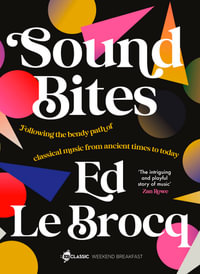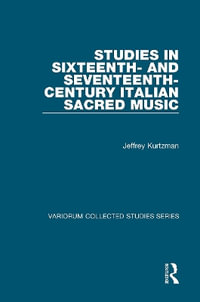Shortly after assuming the Saxon throne in 1656, Lutheran Elector Johann Georg II (r. 1656-80) replaced the elder Kapellmeister Heinrich Schutz with younger Italian Catholic composers. Seemingly overnight, sacred music in the most modern Italian style, first by Vincenzo Albrici (1631-90/96) and later by Giuseppe Peranda (ca. 1625-75) supplanted the more traditional Schutzian sacred concerto and Spruchmotette, effecting a change in musical and spiritual life both within the walls of the Dresden court and beyond.
Drawing on extensive research in primary source materials, Frandsen explores the elector's "Italianization" of the Hofkapelle with castrati and other Italian virtuosi, and examines the larger confessional conflict that gripped the city of Dresden and its implications for the Catholic-leaning elector's musical agenda. She then examines the Latin texts set by Albrici and Peranda, a body of works dominated by expressions of mystical devotion typical of the repertoire then heard in Italy. However, drawing upon recent studies of the phenomenon of "new piety" in seventeenth-century Lutheranism, Frandsen locates these texts squarely within the realm of contemporary Lutheran spirituality, and demonstrates their congruity with devotional materials used by Lutherans since the mid-sixteenth century. In her discussion of the sacred concertos of Albrici and Peranda, she takes the concept of musica pathetica as a point of departure, and also explores the formal and stylistic relationships between
the Roman motet and the new sacred concerto in Dresden. Finally, with the help of liturgies recorded in court diaries, she reintegrates this music into its original performance environment, and demonstrates how tightly the works of these Italians were woven into the Gospel-determined thematic fabric of the services celebrated during the church year.
A fascinating account of the uneasy alliance of two confessions at the prominent seventeenth-century court of Dresden, this book provides fresh insights into a neglected but influential repertoire. Frandsen's research will be of interest to scholars and students interested in Baroque music, the intellectual and cultural history of European courts, the history of liturgy and church history, and the Early Modern era in general.
Industry Reviews
"A thorough and fascinating study of liturgical practice, confessional identity, and music's overriding powers in the heartland of 17th-century Lutheranism. This book will be important reading for students of liturgy, princely politics, and music in early modern Europe."--Robert L. Kendrick, University of Chicago
"Frandsen carefully examines the entire milieu at the court of Johann Georg II--confessional, personal, political, economic, and liturgical--in which the Italian composers Albrici and Peranda worked, bringing vast theological and devotional resources to bear on her analysis of the composers' texts and their confessional implications. Equally sophisticated is her study of the style and organization of the music itself. Prof. Frandsen unfolds this intriguing
story in an engaging narrative, filled with detail and analysis, that reads exceptionally well."--Jeffrey Kurtzman, Professor of Music, Washington University, St. Louis
"A splendid book, of interest to scholars of music, liturgy, Lutheranism and 17th-century history. From her command of a marvelous body of archival material, and astute musical and textual analysis of motets and sacred concertos, Mary Frandsen demonstrates that Elector Johann Georg II, by employing Italian Catholic musicians, brought significant changes to traditional Lutheran devotion. Frandsen's study is an original and penetrating discussion of this
little-known ruler, his penchant for Italian musicians, and the resulting implications for both music and theology."--Anne Schnoebelen, Mullen Professor Emerita of Music, Rice University
"A thorough and fascinating study of liturgical practice, confessional identity, and music's overriding powers in the heartland of 17th-century Lutheranism. This book will be important reading for students of liturgy, princely politics, and music in early modern Europe."--Robert L. Kendrick, University of Chicago
"Frandsen carefully examines the entire milieu at the court of Johann Georg II--confessional, personal, political, economic, and liturgical--in which the Italian composers Albrici and Peranda worked, bringing vast theological and devotional resources to bear on her analysis of the composers' texts and their confessional implications. Equally sophisticated is her study of the style and organization of the music itself. Prof. Frandsen unfolds this intriguing
story in an engaging narrative, filled with detail and analysis, that reads exceptionally well."--Jeffrey Kurtzman, Professor of Music, Washington University, St. Louis
"A splendid book, of interest to scholars of music, liturgy, Lutheranism and 17th-century history. From her command of a marvelous body of archival material, and astute musical and textual analysis of motets and sacred concertos, Mary Frandsen demonstrates that Elector Johann Georg II, by employing Italian Catholic musicians, brought significant changes to traditional Lutheran devotion. Frandsen's study is an original and penetrating discussion of this
little-known ruler, his penchant for Italian musicians, and the resulting implications for both music and theology."--Anne Schnoebelen, Mullen Professor Emerita of Music, Rice University
























